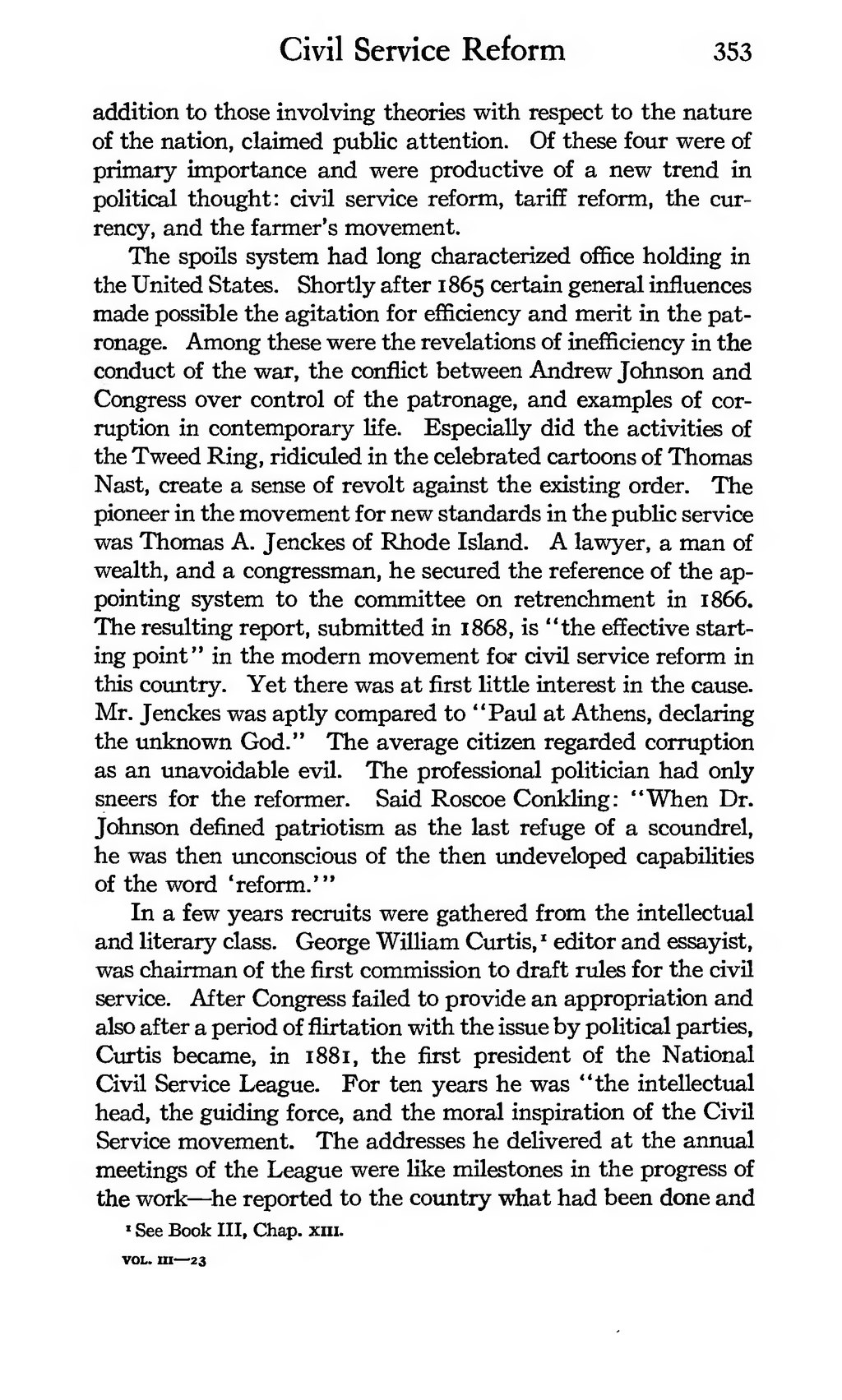addition to those involving theories with respect to the nature of the nation, claimed public attention. Of these four were of primary importance and were productive of a new trend in political thought: civil service reform, tariff reform, the currency, and the farmer's movement.
The spoils system had long characterized office holding in the United States. Shortly after 1865 certain general influences made possible the agitation for efficiency and merit in the patronage. Among these were the revelations of inefficiency in the conduct of the war, the conflict between Andrew Johnson and Congress over control of the patronage, and examples of corruption in contemporary life. Especially did the activities of the Tweed Ring, ridiculed in the celebrated cartoons of Thomas Nast, create a sense of revolt against the existing order. The pioneer in the movement for new standards in the public service was Thomas A. Jenckes of Rhode Island. A lawyer, a man of wealth, and a congressman, he secured the reference of the appointing system to the committee on retrenchment in 1866. The resulting report, submitted in 1868, is "the effective starting point" in the modern movement for civil service reform in this country. Yet there was at first little interest in the cause. Mr. Jenckes was aptly compared to "Paul at Athens, declaring the unknown God." The average citizen regarded corruption as an unavoidable evil. The professional politician had only sneers for the reformer. Said Roscoe Conkling: "When Dr. Johnson defined patriotism as the last refuge of a scoundrel, he was then unconscious of the then undeveloped capabilities of the word reform."
In a few years recruits were gathered from the intellectual and literary class. George William Curtis,[1] editor and essayist, was chairman of the first commission to draft rules for the civil service. After Congress failed to provide an appropriation and also after a period of flirtation with the issue by political parties, Curtis became, in 1881, the first president of the National Civil Service League. For ten years he was "the intellectual head, the guiding force, and the moral inspiration of the Civil Service movement. The addresses he delivered at the annual meetings of the League were like milestones in the progress of the work—he reported to the country what had been done and
- ↑ See Book III, Chap. XIII.
